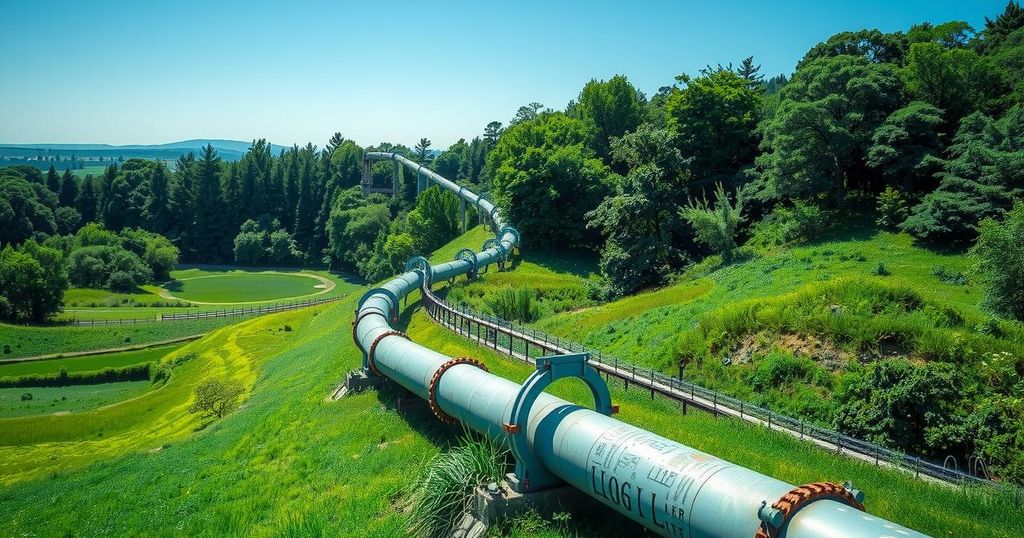An explosion on the Trans-Niger Pipeline in Nigeria disrupted oil operations, prompting an investigation. The pipeline, crucial for transporting crude oil, experienced a blast confirmed by authorities. Initial reports suggest sabotage or failure as potential causes, amid ongoing issues affecting Nigeria’s oil infrastructure.
An explosion occurred on the Trans-Niger Pipeline, a crucial oil channel in Nigeria, late Monday, disrupting operations and prompting a formal investigation. Local authorities reported that the incident took place in Rivers State, generating thick smoke visible from afar, with residents describing a loud explosion followed by intense heat and flames.
The Trans-Niger Pipeline (TNP), which is managed by the Shell Petroleum Development Company and the Nigerian National Petroleum Company Limited (NNPC), serves as a vital conduit for crude oil transportation in the Niger Delta. It stretches approximately 180 kilometers (112 miles) and has the capacity to transport over 450,000 barrels of crude oil daily to export terminals, primarily the Bonny Export Terminal.
Renaissance Group, an oil consortium, confirmed the explosion on its section of the pipeline and stated that they have dispatched a joint investigation team to the site, as indicated by spokesperson Tony Okonedo in discussions with Reuters. Furthermore, the Rivers State Police Command announced the detention of two individuals related to the incident.
Police Public Relations Officer, SP Grace Iringe-Koko, assured the public that a comprehensive investigation is underway to ascertain the explosion’s cause. She noted that the resulting fire, which erupted in a mangrove area, has been extinguished, successfully mitigating further environmental damage.
Although the investigation is ongoing, initial sources suggest potential causes may include sabotage, vandalism, or equipment failure. This incident marks the latest in a series of disruptions affecting Nigeria’s oil infrastructure, exacerbating the country’s already challenging political and economic landscape. Authorities have yet to divulge the extent of the damage or the incident’s potential ramifications on oil production.
The explosion on the Trans-Niger Pipeline underscores ongoing vulnerabilities within Nigeria’s oil infrastructure, prompting investigations into its cause. Authorities are focusing on factors such as sabotage and equipment failure as possible explanations. This occurrence further complicates Nigeria’s political and economic challenges, with repercussions for oil production yet to be fully assessed.
Original Source: www.pipeline-journal.net






